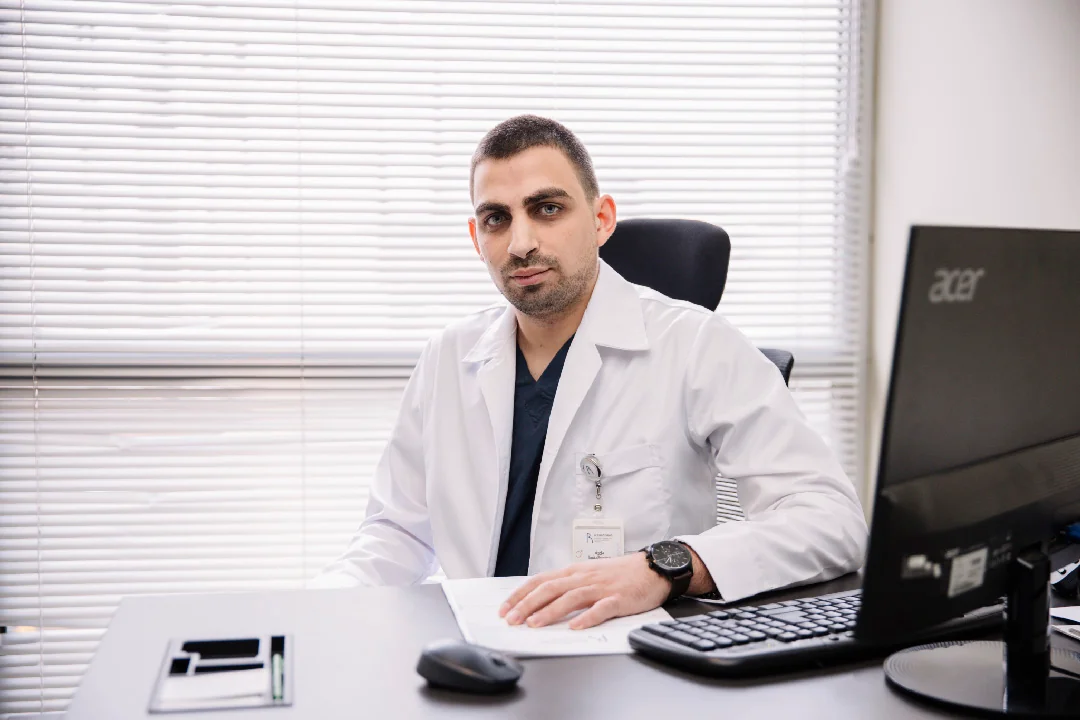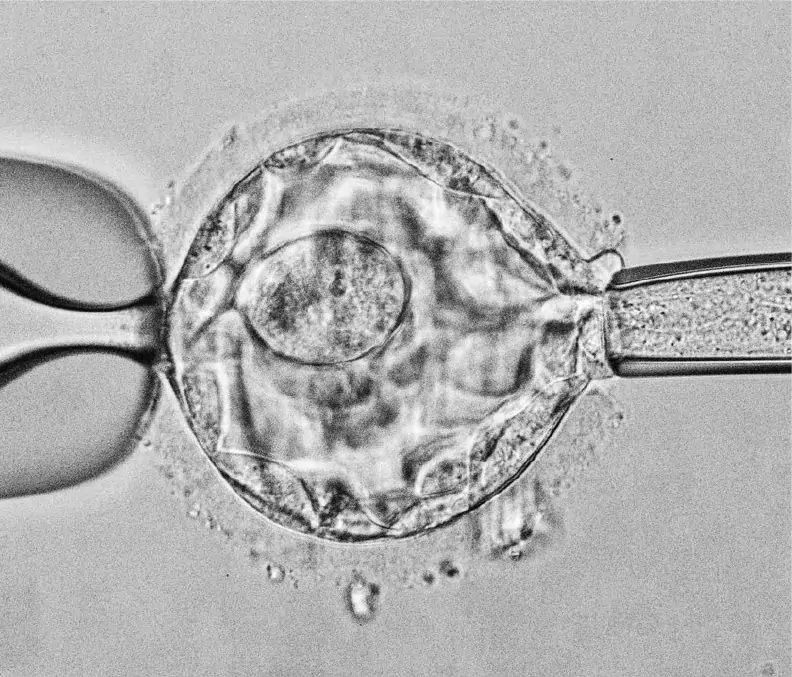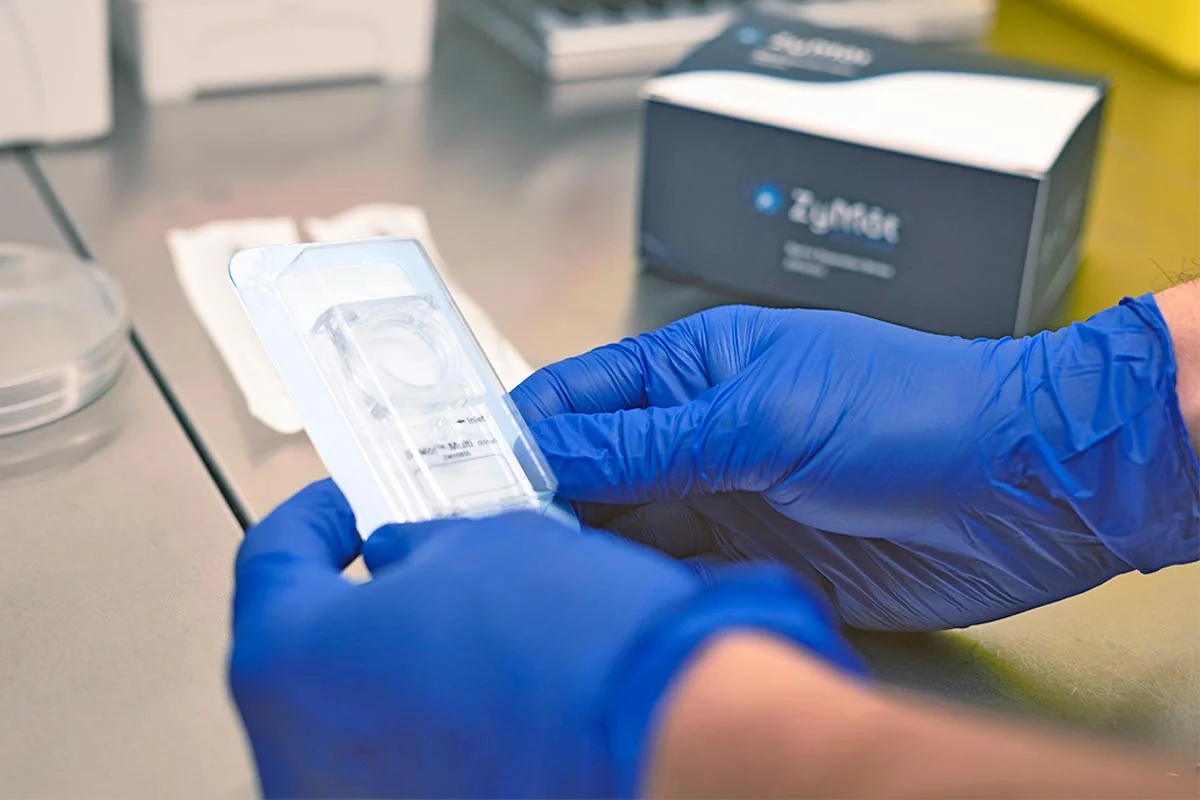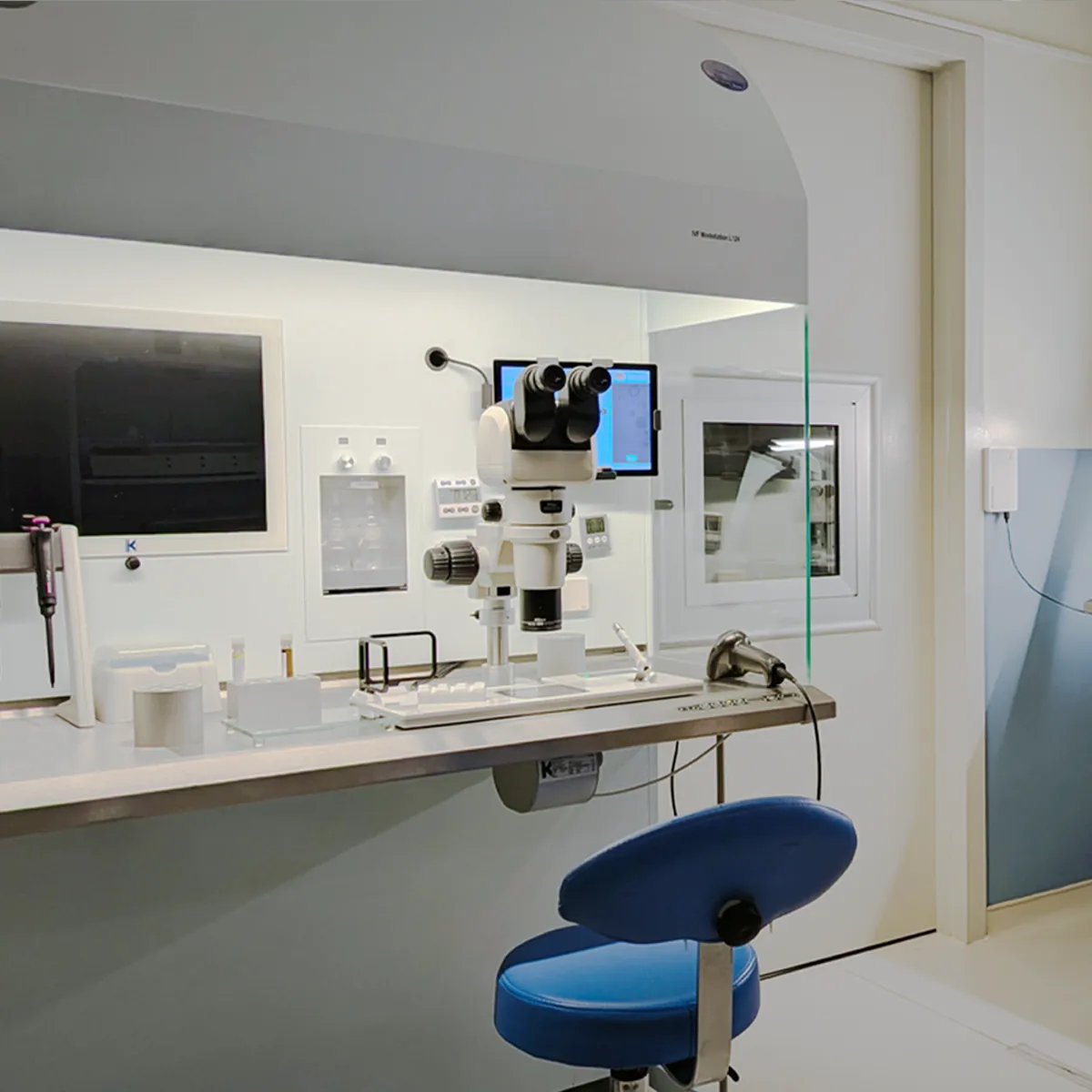
In Vitro Fertilization (IVF)
In Vitro Fertilization (IVF) is one of the most advanced assisted reproductive technologies, helping individuals and couples conceive when natural conception is not possible. During IVF, eggs and sperm are combined in a laboratory setting to create embryos, one of which is later transferred to the uterus.
At Reproart, we combine clinical excellence with compassionate, individualized care. Every IVF journey is guided by precision, transparency, and respect for your unique story, ensuring that you feel supported, informed, and confident at every stage of the process.
Who Might Need IVF?
In Vitro Fertilization (IVF) might be the right choice if natural conception isn’t occurring, despite time, effort, and hope. Many factors can cause this, but none of them are your fault.
At Reproart, our fertility specialists take a deeply personalized and holistic approach to every IVF journey. We carefully consider your medical history, individual circumstances and goals to design a treatment plan that is both scientifically effective and emotionally supportive.
In Vitro Fertilization (IVF) is often recommended in situations such as:
- Blocked or damaged fallopian tubes
- Low sperm count, motility, or morphology
- Irregular or absent ovulation
- Reccurent pregnancy loss
- Diagnosed endometriosis
- Reduced ovarian reserve
- Unexplained infertility
- Unsuccessful outcomes with other fertility treatments
- Use of donor eggs, sperm, or embryos
- Medical need for surrogacy
- Age-related decline in fertility
IVF is a structured and scientifically guided process that can open new possibilities. If you feel this might be part of your journey, we’re here to listen, assess, and support you every step of the way.
When is the Right Time to Speak with a Reproductive Endocrinologist?
If you’ve been trying to conceive for 12 months, or 6 months if you’re over 35, it might be the right time to see a reproductive endocrinologist. During your initial consultation, you’ll gain a clearer understanding of what’s happening in your body and whether IVF or another fertility treatment is best suited to your individual circumstances. Together, we’ll explore your options and help you leave feeling clear, confident, and supported.
We recommend booking a consultation sooner if you’ve experienced recurrent pregnancy loss, irregular menstrual cycles, or have a known reproductive condition. Taking this first step doesn’t mean committing to treatment; it means discovering answers, understanding your fertility health, and creating a personalized plan that’s right for you.
What are the Steps of IVF?
IVF is a multi-step process that combines medical precision with personalized care. Each stage plays a vital role, from preparing your body to fertilization in the lab to finally transferring an embryo into the uterus.
1. Your First Visit
During your first consultation, the Reproductive Endocrinologist will review your medical history, prior treatments, and past pregnancy attempts. An initial evaluation is performed to determine if additional tests are necessary, consider potential treatment options, and develop a tailored care plan. This visit also provides an opportunity to ask questions, discuss your concerns, and gain clarity about the next steps. After this visit, you will have a clear picture of how your journey to parenthood could develop.
2. Pre-treatment Work-Up
Before beginning your IVF journey, your fertility specialist will perform a series of essential tests to assess your hormonal balance, ovarian health, and overall readiness for treatment. These typically include blood tests (FSH, AMH, LH, Estradiol) and ultrasound scans, with additional checks of thyroid, breast, or heart if needed. The results allow your care team to create a personalized IVF plan, ensuring your body is optimally prepared while keeping your safety and comfort at the forefront.
3. Ovarian Stimulation
During a natural cycle, a woman typically produces one mature egg. With IVF, our goal is to stimulate the ovaries to develop multiple eggs to increase the chances of fertilization and embryo development. This is achieved through daily hormone injections over a period of 8–12 days, depending on the individual. Throughout this phase, we closely monitor your hormone levels and follicle growth with blood tests and ultrasound exams, adjusting medications as needed.
4. Egg Retrieval
Once the ovarian follicles have reached the appropriate size, an egg retrieval procedure is scheduled. This minor procedure is performed under light anesthesia or controlled sedation and typically takes 10–20 minutes. Using ultrasound guidance, a fine needle is carefully inserted through the vaginal wall into the ovaries to aspirate the follicular fluid. The retrieved fluid is immediately transferred to the embryology laboratory, where embryologists identify and isolate the eggs.
5. Fertilization
The eggs are placed in a special culture medium and fertilized in our lab – either by combining them with sperm (conventional IVF) or by injecting a single sperm into each egg (Intracytoplasmic Sperm Injection ICSI). Our embryologists monitor their development over the next few days as they grow to the blastocyst stage, usually reached on day 5 or 6. Notably, Georgia’s first ICSI was performed by our founder, Lika Chkonia, after returning from the United States.
6. PGT-A (Optional)
Patients may choose Preimplantation Genetic Testing for Aneuploidy (PGT-A) of their embryos. This test will help identify embryos with the correct number of chromosomes. PGT-A can increase the chances of pregnancy and reduce the risk of miscarriage. The test is optional and recommended based on your medical profile. A biopsy is taken from the part of the blastocyst that later develops into the placenta (trophectoderm). Embryos are usually biopsied on day 5, 6, or 7 of development.
7. Embryo Transfer
Once the embryos reach the blastocyst stage, the best-quality one(s) are selected for transfer into the uterus, either in the same cycle as a fresh transfer or later as part of a frozen cycle. Embryos that are not transferred are frozen for future use. The embryo transfer itself is simple and painless, and it doesn’t require anesthesia. Afterward, you can return to your normal routine with minimal restrictions. At Reproart, we follow a single embryo transfer policy (and in certain cases, two) to ensure a safe and healthy pregnancy.
8. Embryo Freezing
Embryos that are not transferred can be stored frozen (cryopreserved) for later use. This means you won’t need to go through ovarian stimulation or egg retrieval again. Frozen embryos can be transferred in a future cycle, for example, if pregnancy doesn’t occur after the first attempt, if you wish to delay the transfer, or when you’re ready to have another child. Your doctor will help you decide the best timing based on your medical and personal circumstances. All frozen embryos are safely stored in our in-house embryology laboratory.
9. Pregnancy Test and Next Steps
This milestone is both meaningful and emotional, as it confirms whether the embryo has successfully implanted in the endometrium and begun early pregnancy. About 9–12 days after embryo transfer, a blood test (β-hCG) is performed to check for successful implantation. A positive result indicates that implantation has taken place and pregnancy has started! Following this, we’ll move forward with early pregnancy ultrasounds and continue to guide you with care and attention through the next stages.
Contact Personal Manager
Make an appointment or request more information. Leave your contact details and our team will get in touch with you!

Who We Are
At Reproart, excellence begins with the leadership and expertise of Georgia’s first embryologist trained and practiced in the United States. Her guidance has helped set the highest standards in clinical care, laboratory safety, and medical innovation. Every step of your journey is managed in accordance with ISO 9001 standards.

Our Embryology Laboratory
Our laboratory is one of a kind in the region, offering a safe and cutting-edge environment with an advanced air filtration system, uniquely developed by an American company specialising in laboratory air. Our embryologists are trained in the U.S. and Western Europe. Every sample is safeguarded by the RI Witness traceability system, ensuring the highest standards of embryo and gamete safety.
IVF Success Factors
IVF success relies on a balanced combination of factors rather than just the performance of a clinic, a single procedure, or a doctor. Elements such as age, egg and sperm quality, uterine health, overall wellness, your commitment, trust in your care team, and precise timing for each step – all contribute.
At Reproart, every plan is customised to your individual profile, with careful monitoring of hormones, embryo development, and uterine readiness to optimise chances of each cycle.
Patient Testimonials





Patient Resources
We believe that understanding your treatment enhances both medical results and emotional health during your journey. That’s why patient education is not just a service we provide but a responsibility we take seriously. At Reproart, we dedicate time, care, and expertise to ensure every patient feels well-informed.






